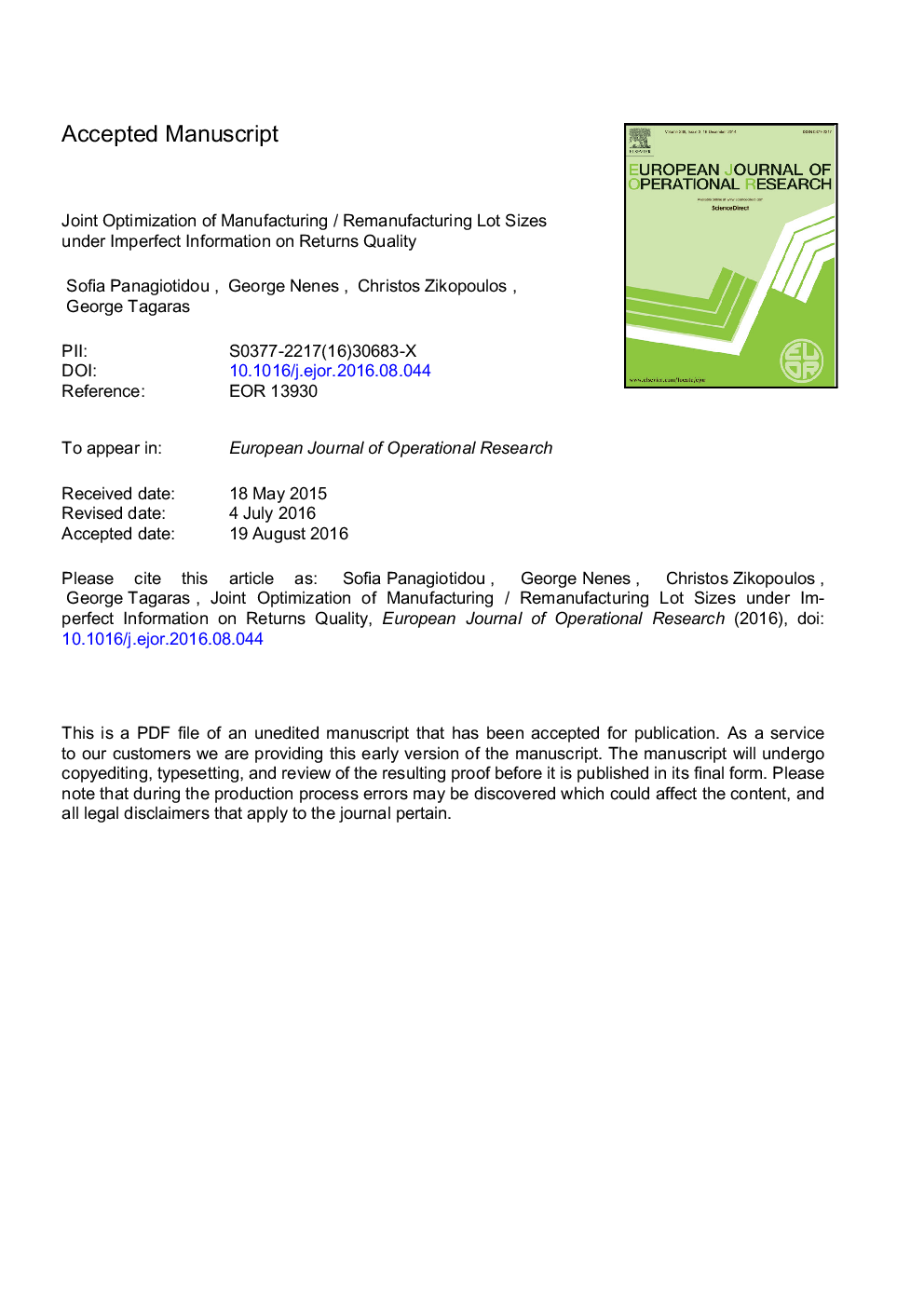| Article ID | Journal | Published Year | Pages | File Type |
|---|---|---|---|---|
| 4959994 | European Journal of Operational Research | 2017 | 32 Pages |
Abstract
The increased quality volatility that characterizes returned used products in reverse supply chains, has led both academic research and industrial practice to support the establishment of, preferably fast and inexpensive, procedures for the quality assessment of returns. To this end, an initial classification of returns is typically performed based on some easily acquirable usage information, which is inherently - yet not always perfectly - related to their quality. Despite the criticality of the returns classification process and its impact on the reverse supply chain operation and profitability, little work has been done on the determination of the optimal threshold values, used to classify returns into different quality categories, taking into account the inevitable quality assessment inaccuracies. Motivated by multiple related reports from industrial applications, in the present paper the problem of optimizing the returns classification process under partial quality information in a hybrid manufacturing/remanufacturing facility is studied. More specifically, analytical models for the joint optimization of the new and returned products lot-sizing decisions are developed, based on usage information of returns which is only indirectly related to their remanufacturability. Our analysis provides useful insights on the value of information regarding the quality of returns under an indicator-based initial classification process. Numerical evidence on the economic superiority of the proposed models under alternative quality patterns of returns is also provided.
Related Topics
Physical Sciences and Engineering
Computer Science
Computer Science (General)
Authors
Sofia Panagiotidou, George Nenes, Christos Zikopoulos, George Tagaras,
